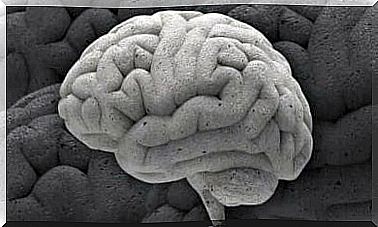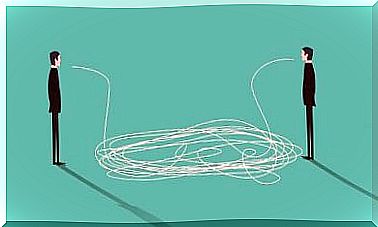People With Compulsive Needs: An All Too Common Phenomenon

People with compulsive needs circle around us like worn-in insects in search of food. They speak only one language: “I want, I need, I have to tell you…” We are talking about people who can not cope with their frustrations. Who lack personal autonomy and the ability to take responsibility for their own lives in a coherent and mature way.
Many psychologists say that these exaggerated “needs” are the real turmoil we are experiencing in the 21st century. Maybe it is society itself that has pushed us against this type of behavior. In many cases, this has been driven by consumer demand and an almost constant need to fill our existential emptiness.
We are missing “something” and we do not know what it really is. This is why we sometimes become sad souls who hang out with our friends in search of a lift or entertainment to satisfy our inexplicable longing. Sometimes we hunt for an impossible love, new experiences, a new mobile or new clothes. Sometimes we use a new TV series to help us forget the stress and our problems, or food to relieve our anxiety, etc.
We need all things, we need all people. We are all “needy” to some degree. However, the problem arises when this deficiency makes us people with compulsive needs. We are talking about the type of people who are desperately looking for something they can not define. Doing so irritates others and makes them feel obligated to take care of their needs and satisfy their demands.

Compulsive needs and the psychologist
This is a growing phenomenon that deserves focus and above all, to be understood. People with compulsive needs abound more than ever, and is also one of the most common cases in psychologists’ clinics. They come very confused, very frustrated, and are often angry at how the world has treated them. Or more specifically on how their friends and family have treated them.
No one seems to live up to their expectations. No one has managed to give them the love they feel they deserve either. The people who always line up for them can not even be counted on with one hand. People with compulsive needs only understand the world from their own perspective. They cannot understand the extent of their constant, selfish and totalitarian demands.
Their attitude is so childish and demanding that the first thing the psychologist must do is break that barrier. He has to make them see that behind the constant need there is an incredible emptiness. Achieving this is not easy. They have always been used to contributing the least effort possible. And let others take care of them, solve their problems and free them from all their fears and difficulties.

How to help people with compulsive needs?
The quality of life of a person who has the feeling that he is always missing “something” can be terrible. Albert Ellis once said “our constant need causes us to lose control and lead to negative emotions.” If so, it is due to something as obvious and simple as: that the feeling of “needing something” is related to our sense of survival.
In other words, we believe that we cannot move forward without filling the void we experience. If people do not help me or if they do not support me, if I can not get this thing or that thing then everything will fall apart. Consequently, the feeling of missing something breeds fear, the fear gives need, and the need leads to despair. We are facing a vicious circle that must be deactivated so that we can function in a more logical, healthy and meaningful way.
Advice to stop needing
The first step we need to take with these people is to work on their real needs. A good exercise is to try to replace “I need” with “I want”. For example:
- “I need others to listen to me” ⇔ “I have to feel valued, because I do not love myself enough”
- “I need others to help me solve my problems” ⇔ “I need help because I can not handle what happens to me alone”.
Once the person has clarified where the emptiness or weaknesses come from (poor self-esteem, insecurity, inability to solve problems, inability to make decisions, etc.) then it is time to work on each of these aspects in depth.

Another crucial point in this process is to get the patient with compulsive needs to use a simple rule in their daily life: “I must try to find in myself what I am looking for in other people”.
- In other words, if I need someone else to figure out a problem, I will instead try to figure it out myself. If I want someone to give me their support in a particular situation, I will first try to motivate myself. I will try to find strength and positive words within myself to achieve the goal I have set myself.
- In the same way, this type of personality is characterized by backward personal development. It is therefore recommended to encourage them to experience new things to help them reflect and work on opening up their emotions.
Last but not least, working with empathy and social awareness never hurts. They need to understand that others have needs as well. And that in life you must not just use the verbs “will” or “need”. But also another word that is even more important, “to give”.









